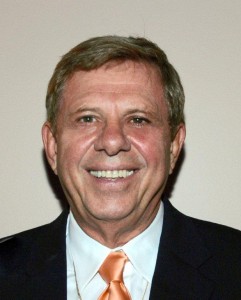
George Matsoukas, Executive Director of Orthodox Christian Laity
Source: Orthodox Christian Laity
The Assembly of Bishops will meet during the first week of October in Detroit. How will this meeting be different from all other such meetings? Where is the leadership?
The work of the Holy and Great Council has been completed, and little action was taken to address the uncanonical situation of the parallel jurisdictions that make up the Orthodox Christian Church in the USA. This situation is unacceptable, because it keeps our message, outreach and mission fragmented and wastes the resources of the lay stewards of the Church. This fragmentation continues to cause a decline in Church membership. Our census figures show that our children and grandchildren are less frequently participating in the sacraments of marriage and the baptism of their children. Our children grow in Christ and reach out to each other in Pan-Orthodox relationships at our universities and do not return to the ethnic fold. They walk away from the Church. The fact that there does not exist a synergy of clergy and laity working together and that our church has become hierarchical and clerical causes older stewards to become passive participants in governance and in the liturgical life of the Church. Where are we headed?
The inability of the Holy Council to address the issues related to Churches outside of traditional Orthodox lands makes the work of the Assembly of Bishops more meaningful. So far in eight years, some issues have been addressed in committee work, but the Assembly has not developed a blueprint for establishing as self-governing Church in the USA. What does it take to get them to create this blueprint? Why are the bishops afraid to move ahead to meet the needs of their flock and correct the uncanonical situation that exists here in the USA which hampers our mission? They were called to be servants and to fulfill their vocations. This means that they need to have a long-range vision. What causes them to lose their convictions and makes them continue to do the same old things over and over again. What are they afraid of? With Christ, all things are possible.
Where is the agenda for this October meeting? Why have all the documents of the eight years of meetings not been made public to the stewards of the Church? Why do the Bishops meet almost in secret and use the cosmetics of democracy, a press release here and there, create a web site that is more form than substance? When will they embrace the reality that they need to be accountable to each other and their flock? When will their work become transparent? Embracing these values will help them face issues in new ways and not the same old ways.
What do we know about how their meetings are conducted? They do not have a clear picture of how to reach decisions. Their rules of procedure are not clear. Can one or two bishops thwart the will of the many? How is the minority decision brought forth? If some bishops want to continue to play the role of spoilers, let them not participate and the majority must move on.
Will the Executive Committee bring in experts in conflict resolution and professionals who know how to work with groups to help them understand negotiating skills? When will they embrace the skill sets of the flock to assist them in their work? How can they create a blueprint without the input of the inclusive participation of the clergy and laity? When will they invite us to participate in synergy with each other? Creating the blueprint is a top down and bottom up proposition guided by the Holy Spirit.
The laity have the responsibility to continue to pray for our bishops and to stop enabling them to continue to work in isolation and without our genuine participation and involvement. The laity must give them the courage to declare themselves the Synod of the Orthodox Church of America and help them to elect their own head, so that we can be a Church in good order in the United States.
George Matsoukas




3 Comments
I guess that the bishops just don’t care enough about actual unity to make it happen here. Sames goes for Canada, Australia and other places in the so-called ‘diaspora’. Only when the absolute majority of the bishops are actually born in the places where they ‘rule’, will there be any progress, i think.
In the meantime we laity will live in our various ghettos and participate in Sunday Lenten vespers and eat our various ethnic foods together.
Ho hum!
How about this for a suggestion for the Assembly of Bishops. Have every organization that is officially supported by the Assembly produce audited financial statements for the last 3-4 years and post those financial statements on the assembly website
First, I commend and thank Mr. Matsoukas for his leadership, commitment and work to bring us all together in this country. There are many tens of thousands of us who are largely silent and invisible, but who are fully supportive of all efforts to create a true American Orthodox Church, encompassing all of us who live in this great land; respectful of our European, and Asian origins, traditions and values but also living contemporary lives of witness among our non-Orthodox neighbors and friends within an American context.
The Bishops are, in my opinion, reacting to fear: fear of losing power and control of their diocese parishes, and fear of negative reactions from overseas. At some point, the laity will need to organize, independent of our hierarchs, and pressure them to act in a responsible, canonical and timely manner, and guarantee our continual support when they do so.
To state the obvious, without the laity and its resources, the church does not exist. This fact needs to now be translated into action directed toward the hierarchs. Otherwise, we will be in this same place ten and twenty years from now. “The fault, dear Brutus, is not in our stars, but in ourselves that we are underlings”.